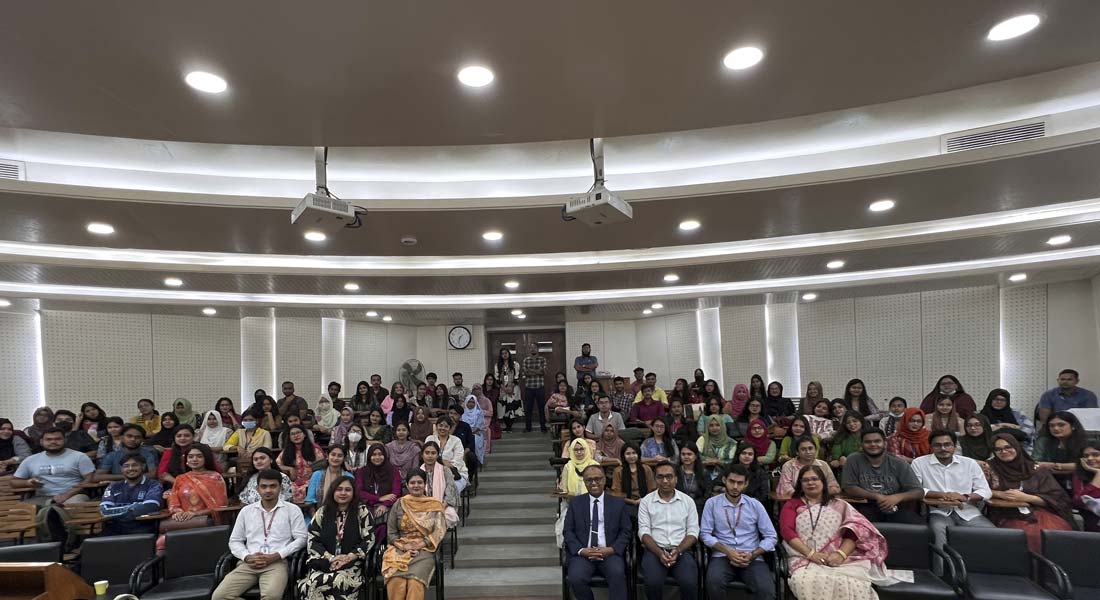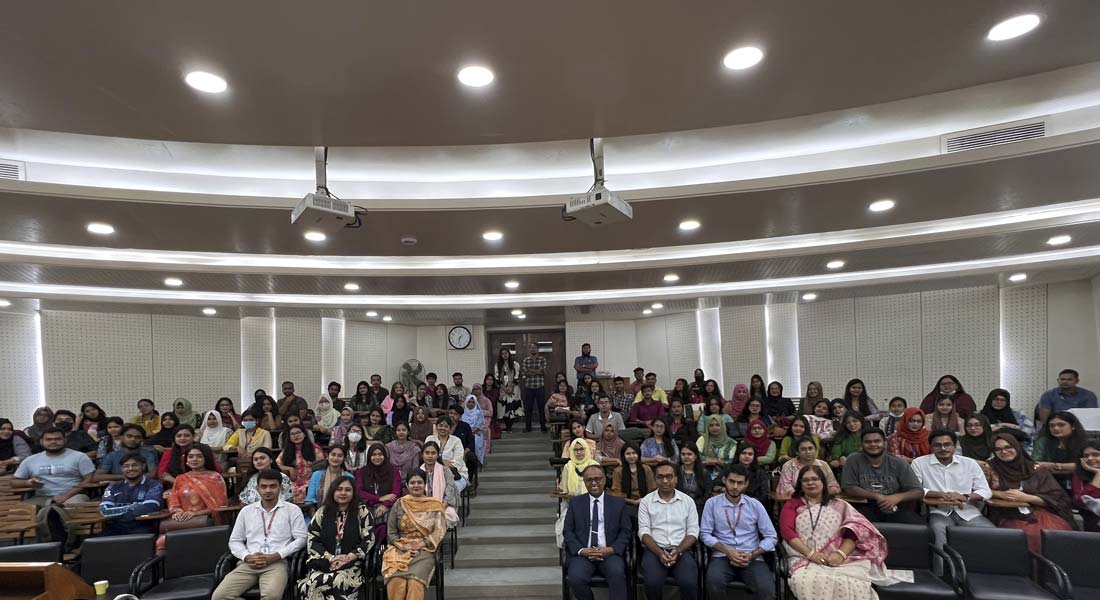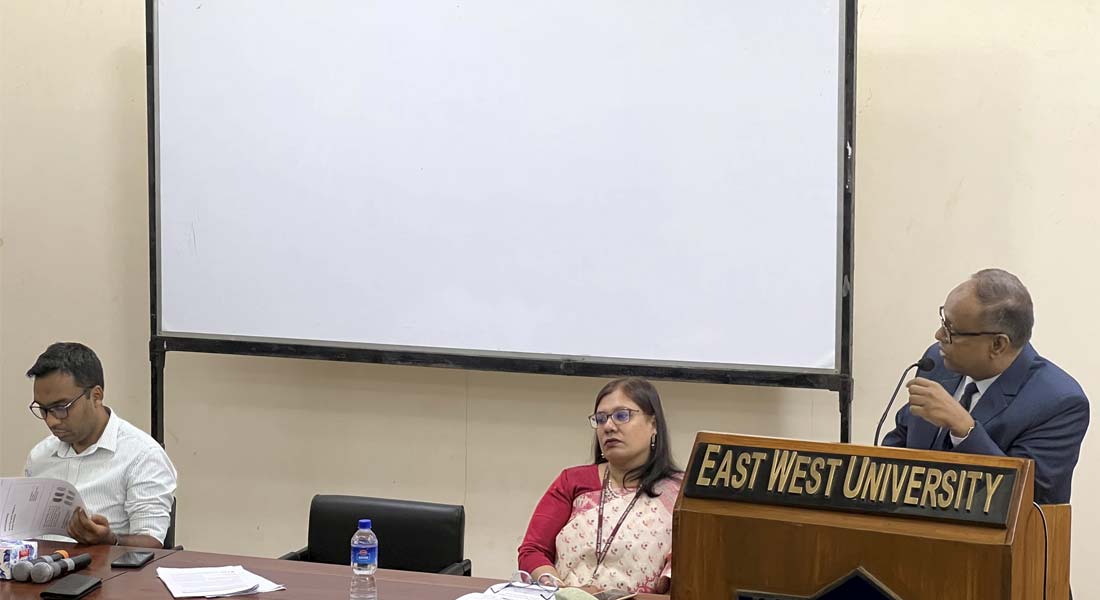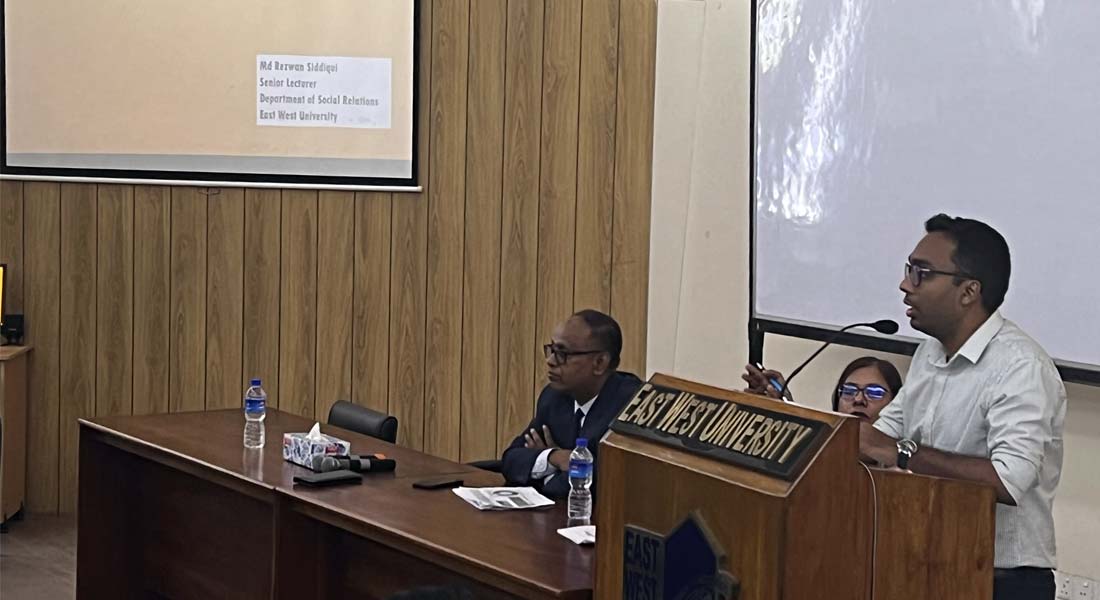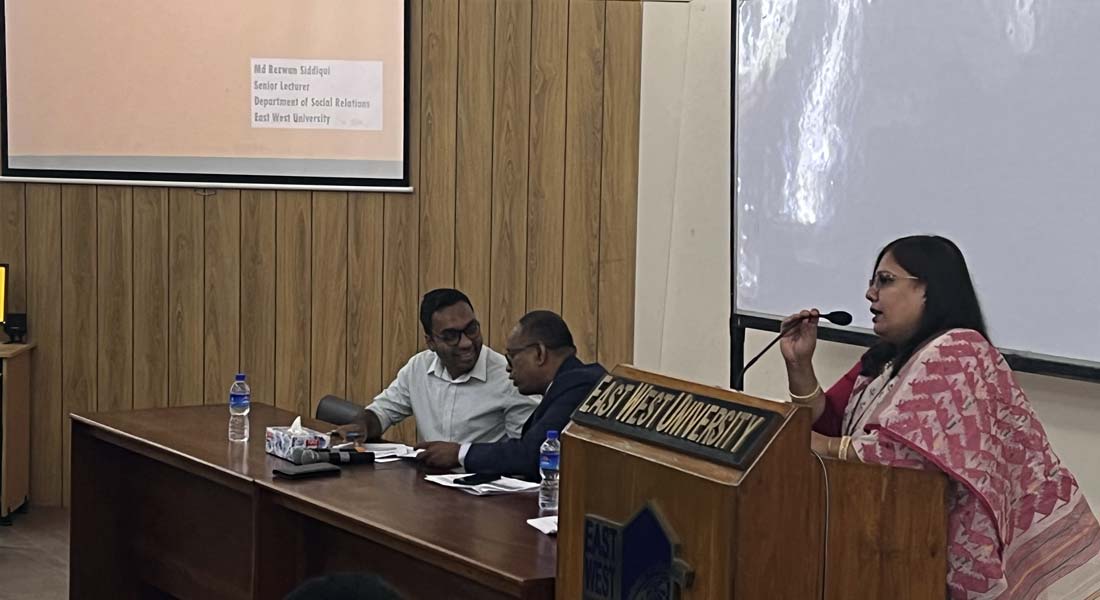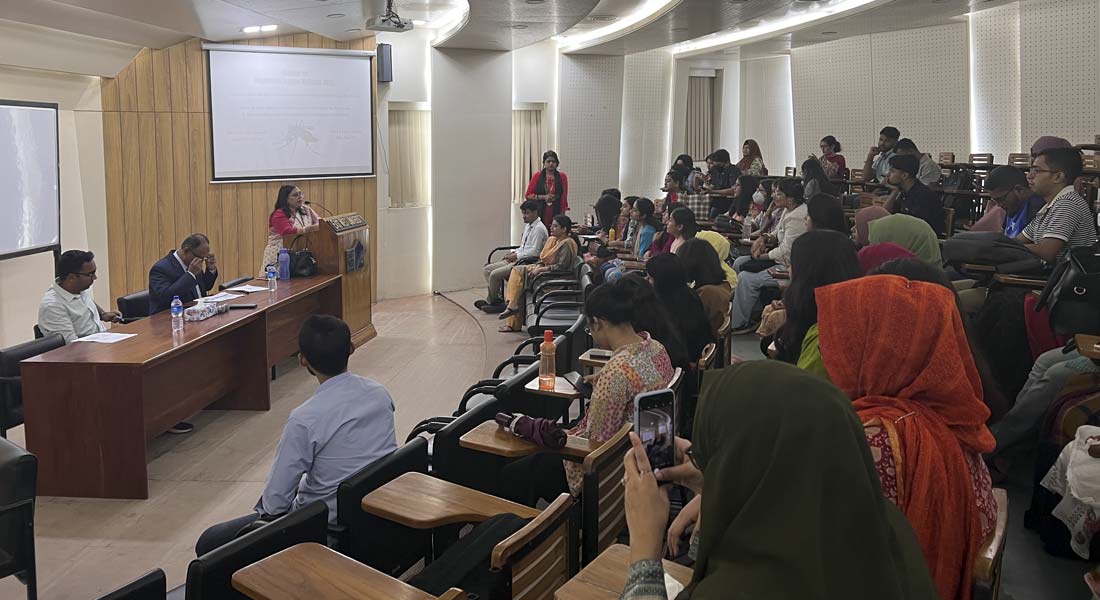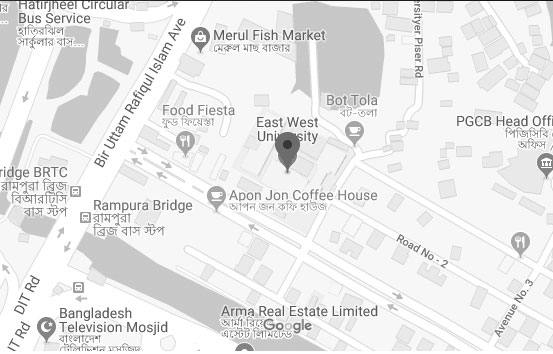Seminar on ‘Bangladesh Dengue Outbreak 2023’ Organized by Department of Social Relations, East West University
The Department of Social Relations at East West University organized a seminar titled "Bangladesh Dengue Outbreak 2023" on August 31, 2023 in the S. M. Nousher Ali Lecture Gallery. The seminar was chaired by Professor Dr. Md. Mobarak Hossain Khan, Chairperson of the Department of Social Relations at East West University. The seminar featured presentations by Md. Rezwan Siddiqui, Senior Lecturer, and Dr. Marzia Zaman Sultana, Senior Lecturer, both from the Department of Social Relations at East West University.
Faculty members from the Department of Social Relations, as well as students from various courses and departments, attended the seminar and actively participated in the question-and-answer session. During the program, the chairperson delivered a presentation on the "Epidemiology of Dengue," providing insights from both a global and Bangladeshi perspective. In his speech, he highlighted that dengue has emerged as a significant public health challenge in recent years within Bangladesh. The statistics reveal a concerning trend, with the number of dengue patients, related deaths, and the case fatality rate consistently increasing annually. This year, the rates have reached their highest levels yet. He also highlighted that in the past, dengue cases were primarily concentrated in Dhaka city. However, this year, cases have been reported in all districts across the country. Interestingly, while there is a higher number of patients outside Dhaka city, the number of fatalities is disproportionately higher within the city itself. This situation underscores the need for further research to identify the factors contributing to the spread and severity of dengue in different regions of the country.
Among the two speakers, Md. Rezwan Siddiqui delivered a presentation on ‘Spatial Epidemiology: Use of Geo Spatial Technique in Dengue Monitoring’. In his presentation, he demonstrated how geo-spatial techniques can be employed to identify clusters of dengue patients, areas with dengue-related fatalities, and hotspots for Aedes mosquito breeding. These insights can play a pivotal role in formulating effective policies for the prevention and control of dengue in the country.
The other speaker, Dr. Marzia Zaman Sultana, presented about the risk factors of dengue, signs and symptoms, treatment guidelines, diagnostic investigation and available treatment options, preventive and control measures for dengue. According to her research findings, this year, DENV2 and DENV3 have emerged as the predominant serotypes among confirmed dengue patients. It's important to note that sequential infections with heterologous serotypes can lead to severe dengue syndromes, including dengue hemorrhagic fever and dengue shock syndrome. While common symptoms of dengue are sudden high-grade fever, rash, retro orbital pain, pain in back, legs, bones, joint and muscles but many of the patients are presenting with atypical symptoms this year like diarrhea, vomiting, breathlessness and sudden shock. Therefore, this year all febrile patients are suggested to do complete blood count and dengue NS1 antigen test in 1-3 days of fever, if positive repeat CBC daily and take medications according to doctor’s suggestion. Patients should avoid pain killers, NSAID, steroids or antibiotics. They should intake plenty of liquids like water, ORS, milk, coconut water etc; check urine output and blood pressure regularly at home. Patients should be referred to hospitals if there is any signs of bleeding or shock. Mosquito control and environmental sanitation is key for prevention and control of dengue outbreak.
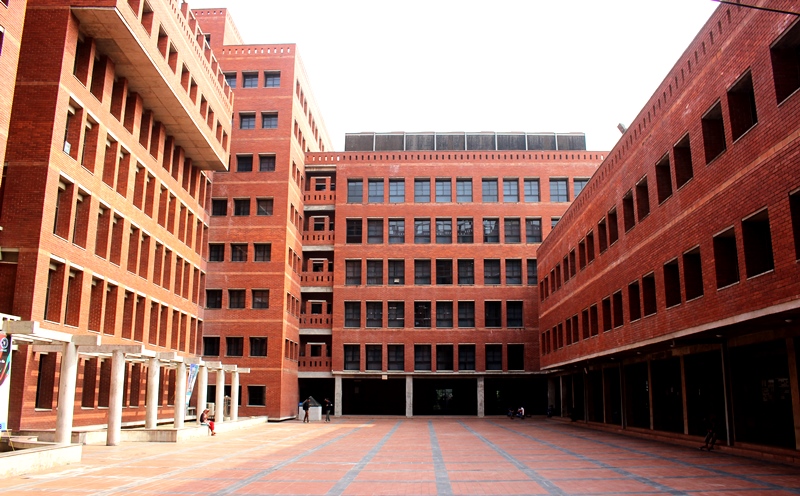 Academic offerings include 95 majors, 86 minors, and more than 100 in-major specializations and more than 100 in-major specializations
Academic offerings include 95 majors, 86 minors, and more than 100 in-major specializations and more than 100 in-major specializations Academic offerings include 95 majors, 86 minors, and more than 100 in-major specializations and more than 100 in-major specializations
Academic offerings include 95 majors, 86 minors, and more than 100 in-major specializations and more than 100 in-major specializations
